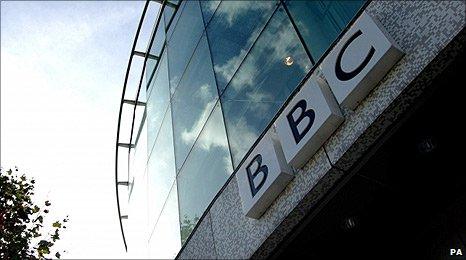At a glance: BBC's annual report
- Published

The BBC's annual report has been published for the financial year 2009-10.
Here are some of the key points from the review, which is conducted by the management and its regulatory body, the BBC Trust.
The corporation made £316m in efficiency savings over the past year.
BBC STAR SALARIES
The BBC has cut £7.7m from its budget for paying presenters, journalists and musicians, which came to £221.5m.
The BBC spent £52.2m of this on talent earning in excess of £150,000 a year - down £2.2m on last year.
BBC managers have said they will "continue to exercise tight controls" in the field of star salaries.
BBC MANAGEMENT PAY
Five months after new measures were announced to reduce management and pay, the number of managers had been cut by 24, and the pay bill fell by £7.7m.
The BBC has said this process will continue and be regularly reviewed.
BBC Trust chairman Sir Michael Lyons said any new managers have been paid 12% less than their predecessors.
Director general Mark Thompson's salary rose slightly from £834,000 to £838,000, while director of vision Jana Bennett registered a minimal increase from £515,000 to £517,000.
The number of senior managers has fallen to 599, a further reduction of 15 since data was published in the annual report.
A pledge to cut back the number of managers to 520 by 2013 has been undertaken.
Meanwhile, the number of BBC staff rose slightly in the past year to 17,238.
BBC ONE
The management's view: It is Britain's favourite channel, is at the heart of our cultural life and part of the national conversation.
The trust's view: Would like to see the channel harnessing its scale and size by being more ambitious and distinctive, by increasing the variety of programming in pre-watershed peak time and showing greater ambition at 2100.
The levels of quality of parts of the daytime schedule are not meeting audience expectations, while its range of programming at peaktime is too narrow.
The trust's public consultation found that daytime schedules were too weighted towards long-running factual entertainment strands with similar subject areas.
BBC TWO
The management's view: Over the last year, we have increased the impact of factual programmes in peak-time with higher levels of quality, originality and innovation.
The trust's view: Needs to provide a clearer alternative to BBC One, even at the risk of reaching fewer viewers. It should increase the range of its factual programming, signature drama and develop a more distinctive role in mainstream comedy.
The levels of quality of parts of the daytime schedule are not meeting audience expectations.
Like BBC One, programming has too many ongoing strands including collectibles hunting and property.
BBC THREE
The management's view: Really hitting its stride, the channel's share of younger audiences has grown this year, proving how readily young audiences can connect to difficult material.
The trust's view: Stresses the channel's importance in engaging younger audiences with bold and challenging programming.
BBC FOUR
The management's view: Has notably raised the profile of its arts output. The channel continues to grow in audience numbers as it pursues an unashamedly expert and in-depth approach to arts and culture.
ThetTrust's view: Over the coming years its main challenge is to increase the impact it delivers in core areas of specialism.
BBC RADIO
According to the BBC Trust, Radio 1 and 2 must work hard to maintain their current level of distinctiveness and it proposes no changes to Radios 3, 4, 7 and 5 live.
The BBC management has concurred with the trust's view that plans to close 6 Music would only be considered as part of a wider review of digital radio.
BBC Trust rejects 6 Music closure, external
Its decision to close the Asian Network was endorsed by the trust, which acknowledged that the station had been underperforming for some time.
- Published5 July 2010
- Published5 July 2010